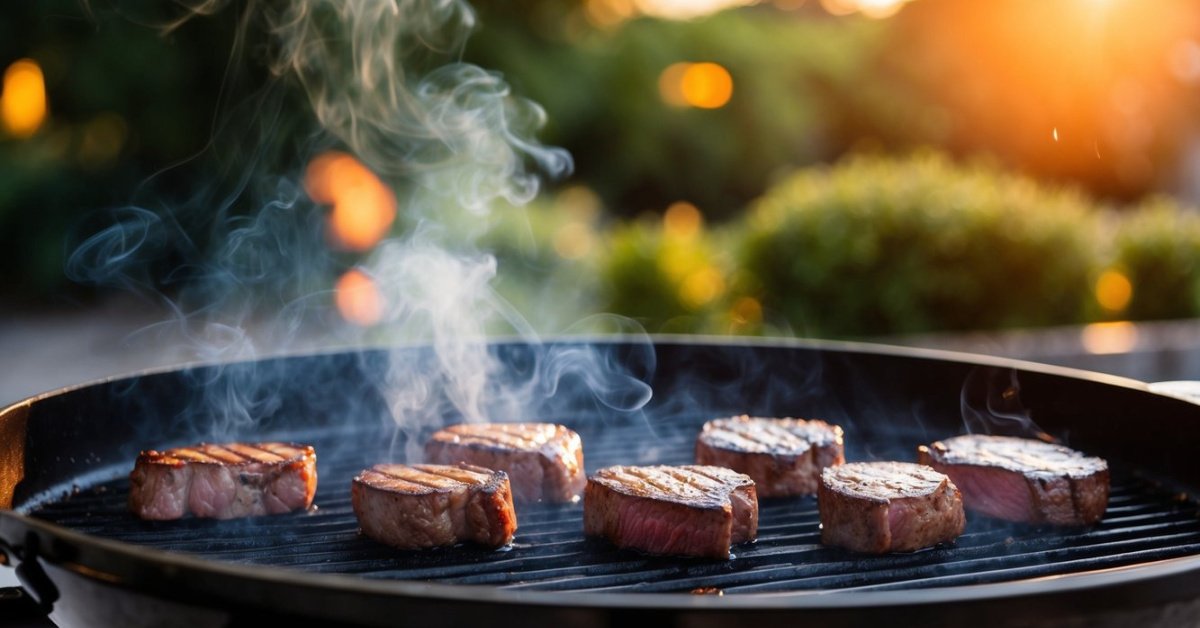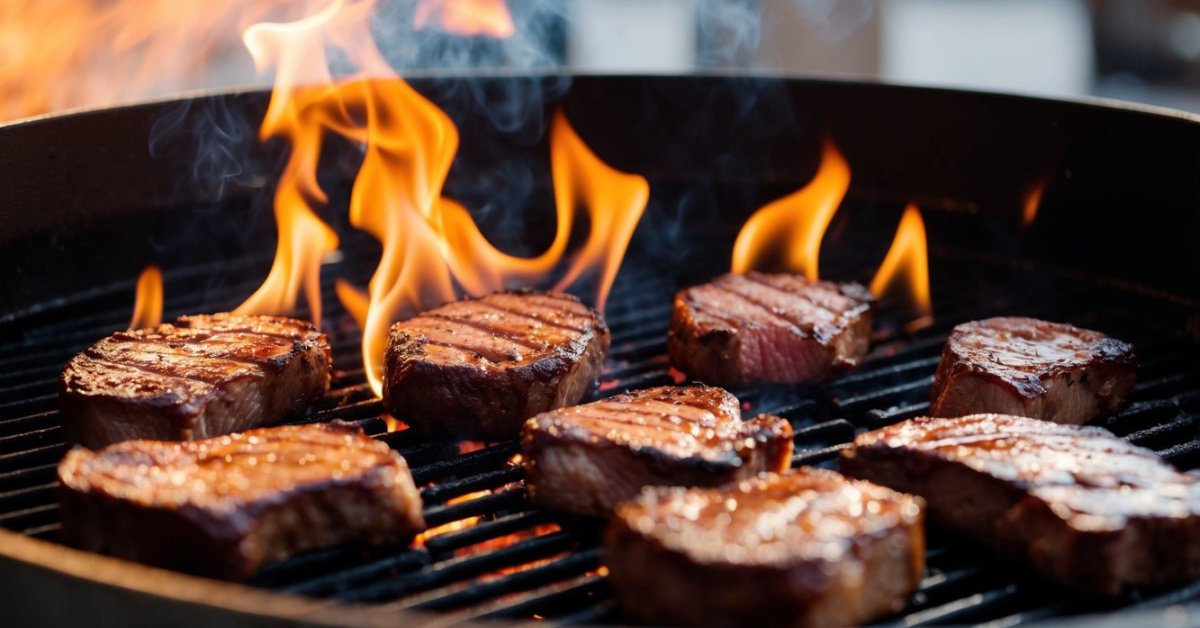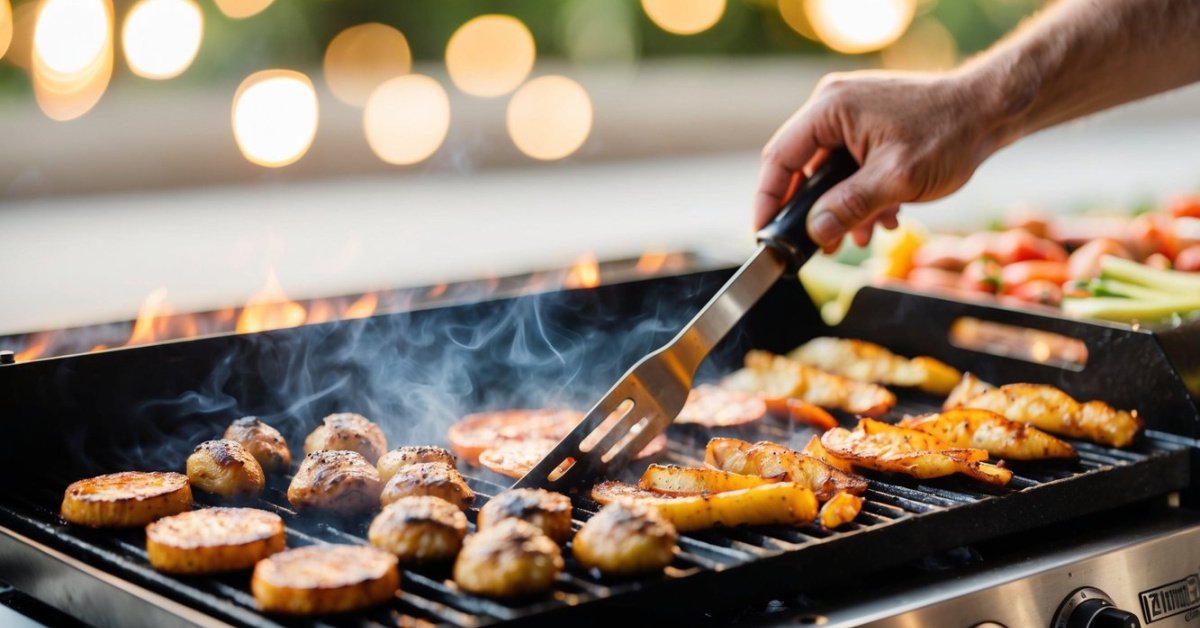
Grilling is a popular cooking method that adds a delicious smoky flavor to your favorite foods. But have you ever wondered if it’s safe to grill your food? In this article, we’ll explore the safety aspects of grilling and provide you with some important information to keep in mind. Whether you’re a seasoned griller or a beginner, understanding the potential risks and how to mitigate them is crucial for enjoying a safe and tasty grilling experience.
When it comes to grilling, one of the main concerns is the formation of potentially harmful compounds. The high heat involved in grilling can lead to the production of carcinogens such as heterocyclic amines (HCAs) and polycyclic aromatic hydrocarbons (PAHs). These compounds have been linked to an increased risk of cancer. However, by following some simple tips and techniques, you can significantly reduce the formation of these harmful substances and make grilling a safer cooking method for your food.
In addition to the formation of carcinogens, another important aspect to consider is food safety. Grilling often involves cooking meat, poultry, and seafood, which are prone to bacterial contamination. It’s crucial to handle these foods properly, ensuring they are cooked to the correct internal temperature to kill any harmful bacteria. By following proper food safety guidelines, you can enjoy delicious grilled meals without compromising your health. So, let’s dive into the world of grilling safety and discover how you can make the most out of your outdoor cooking adventures.
Understanding the Basics of Grilling
So, you’re ready to dive into the world of grilling and take your outdoor cooking skills to the next level. That’s great! Grilling is not only a delicious way to prepare food, but it also brings people together and creates memorable experiences. But before you fire up the grill, it’s essential to understand the basics of grilling for a safe and enjoyable experience.
1. Choose the Right Grill:
When it comes to grilling, you have a few options to choose from. The most common types of grills are charcoal, gas, and electric. Each has its pros and cons, so consider your needs, budget, and personal preference before making a decision.
2. Preheat the Grill:
To ensure even cooking and prevent sticking, always preheat your grill before placing the food on the grates. This allows the grill to reach the desired temperature and creates those beautiful sear marks that we all love.
3. Clean and Oil the Grates:
A clean grill is a healthy grill. Before cooking, give the grates a good scrub with a brush to remove any residue from previous grilling sessions. Afterward, apply a thin layer of oil to prevent food from sticking.
4. Direct and Indirect Heat:
Understanding the concept of direct and indirect heat is crucial for controlling the cooking process. Direct heat is when the food is placed directly over the flames or heat source. Indirect heat, on the other hand, involves cooking the food away from the direct heat source, usually with the grill lid closed. This method is ideal for larger cuts of meat or delicate foods that require slower cooking.
5. Food Safety:
While grilling is a fantastic way to cook, it’s important to prioritize food safety. The high heat of grilling can kill harmful bacteria, but it’s crucial to cook meats, poultry, and seafood to their recommended internal temperatures. Invest in a reliable meat thermometer to ensure that your food is cooked to a safe temperature.
Potential Risks of Grilling
As a grill master, it’s important to address the potential risks associated with grilling. While grilling can be a fantastic way to cook delicious food, it’s essential to be aware of certain factors that could compromise the safety and quality of your meals. By understanding and implementing proper techniques, you can minimize these risks and ensure a safe grilling experience. Let’s explore some of the potential risks you should be aware of:
- Formation of Carcinogens: The high heat involved in grilling can lead to the formation of carcinogens, such as heterocyclic amines (HCAs) and polycyclic aromatic hydrocarbons (PAHs). These compounds have been linked to an increased risk of cancer. However, by following a few simple tips, you can significantly reduce the formation of these harmful substances.
- Bacterial Contamination: Grilling often involves cooking meat, poultry, and seafood, which are prone to bacterial contamination. It’s crucial to handle these foods properly and cook them to the correct internal temperature to kill any harmful bacteria. Failure to do so can result in foodborne illnesses.
- Fire Hazards: Grilling involves working with an open flame or high heat source, which can pose fire hazards if not managed carefully. Always ensure that your grill is stable and placed in a safe location away from flammable materials. It’s also essential to have a fire extinguisher nearby, just in case.
- Cross-Contamination: Cross-contamination can occur when raw meat, poultry, or seafood comes into contact with other foods or surfaces. This can lead to the spread of harmful bacteria. To prevent cross-contamination, use separate cutting boards and utensils for raw and cooked foods, and wash your hands thoroughly after handling raw ingredients.
Remember, grilling can be a safe and enjoyable cooking method as long as you take the necessary precautions. By understanding the potential risks and implementing proper techniques, you can ensure that your grilled meals are not only delicious but also safe for you and your loved ones to enjoy. So, let’s dive into the tips and techniques that will help you grill like a pro while prioritizing safety and flavor.
Minimizing Risks: Tips for Safe Grilling
As a seasoned grill master, I want to ensure that you have a safe and enjoyable grilling experience. While grilling adds that delicious smoky flavor to your food, it’s essential to be aware of the potential risks involved. By following a few simple tips and techniques, you can minimize these risks and grill your food safely.
1. Preparing Your Grill
Before you start grilling, it’s important to make sure your grill is clean and in good working condition. Here are a few steps to help you prepare your grill:
- Clean the grill grates: Scrub the grates with a wire brush to remove any leftover food or debris. This will help prevent any cross-contamination and improve the flavor of your food.
- Check for gas leaks (for gas grills): If you’re using a gas grill, check the gas connections for any leaks. Apply a soapy water solution to the connections and look for bubbles. If you see bubbles, there’s a gas leak, and you should have it fixed before using the grill.
- Position the grill in a safe area: Ensure your grill is placed away from any structures, overhanging branches, or flammable materials. This will help prevent fire hazards.
2. Safe Handling and Cooking of Food
Proper food handling and cooking techniques are crucial to ensuring the safety of your grilled food. Here are some tips to keep in mind:
- Thaw food properly: Thaw frozen meat, poultry, and seafood in the refrigerator prior to grilling. Avoid thawing at room temperature, as it can promote bacterial growth.
- Marinate your meat: Marinating your meat before grilling can help reduce the formation of harmful substances. The acids in the marinade can act as a barrier between the meat and the high heat, minimizing the risk of carcinogen formation.
- Cook to the right temperature: Use a meat thermometer to ensure your food reaches the appropriate internal temperature. This will help kill any harmful bacteria. For example, cook chicken and turkey to an internal temperature of 165°F (74°C) and ground meat to 160°F (71°C).
Remember, grilling can be a fun and delicious way to cook food, but it’s crucial to prioritize safety. By following these tips and techniques, you can minimize the risks associated with grilling and enjoy your perfectly grilled meals with peace of mind
The Importance of Proper Food Handling
When it comes to grilling, one of the most important aspects to consider is proper food handling. As a grill master, it’s crucial to teach beginner BBQ enthusiasts the importance of handling food correctly to ensure a safe and delicious grilling experience.
Thawing Frozen Food Properly
Before you start grilling, it’s essential to thaw frozen food properly. Leaving food out at room temperature for an extended period can promote bacterial growth. Instead, thaw frozen meat, poultry, or seafood in the refrigerator or using the defrost function on your microwave. This ensures that the food thaws evenly and reduces the risk of harmful bacteria.

« Top 5 Pellet Grills: A Comprehensive Guide to Buying the Best Option
The Top Gloves for Grilling and Smoking: Heat resistance, comfort, flexibility, and grip »
Marinating to Reduce Harmful Substance Formation
Marinating is not only a great way to add flavor to your grilled dishes but also helps reduce the formation of harmful substances. When certain ingredients, such as herbs, spices, citrus juices, and vinegar, are included in your marinade, they can act as natural antioxidants. These antioxidants help minimize the formation of potentially carcinogenic substances when grilling at high temperatures.
Cooking to the Right Temperature
One of the most important steps in proper food handling is cooking your food to the correct internal temperature. This is especially crucial for meat, poultry, and seafood, which can harbor harmful bacteria. Invest in a reliable meat thermometer to ensure your food reaches the recommended safe temperatures:
- Beef, pork, veal: 145°F (63°C)
- Poultry: 165°F (74°C)
- Fish: 145°F (63°C) or until opaque and flakes easily with a fork
By cooking your food to the right temperature, you can effectively kill any bacteria and ensure that your grilled dishes are safe to eat.
Conclusion
By following proper techniques and taking necessary precautions, grilling can be a safe and enjoyable way to cook food. While the high heat involved in grilling can lead to the formation of carcinogens, such as heterocyclic amines and polycyclic aromatic hydrocarbons, there are steps you can take to minimize their formation. Thaw frozen food properly, marinate meat to reduce harmful substance formation, and cook to the right temperature. These simple tips can go a long way in ensuring that your grilled food is not only delicious but also safe to eat.
Remember, proper food handling is crucial when it comes to grilling. By being mindful of hygiene and following basic safety practices, you can prevent the risk of foodborne illnesses. Clean your grill regularly, separate raw and cooked foods, and use a food thermometer to ensure that your food is cooked to the appropriate temperature.
So, don’t let the potential risks deter you from enjoying the flavors and experience of grilling. With a little knowledge and care, you can make grilling a safe and tasty part of your cooking repertoire. Happy grilling!













